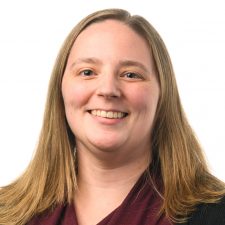Professional Ethics
Professional Ethics Program
Essential to the mission of Greater New Jersey are leaders who have healthy boundaries and professional ethics. Ethics is the set of principles that govern our behavior both in and out of the church. Greater New Jersey has developed a professional ethics development program to aid appointed clergy and assigned laity in understanding ethics and in the ability to make healthy and appropriate decisions.
In consideration of Greater New Jersey’s current Safe Sanctuaries legislation, the Book of Resolutions #2044 calling on conferences to provide Sexual Ethics trainings, and the general need for Financial Ethics trainings, it was discerned that these three areas of training be developed and initiated in 2023. By the end of 2024, all clergy under appointment (including extension ministries), supply pastors, and certified lay ministers will be required to complete all three trainings.
Three quality, reputable, basic trainings were identified by a diverse team consisting of several members of the Board of Ordained Ministry (BOOM), Board of Laity, Cabinet, Conference Commission on Religion and Race (CORR), Conference Commission on the Status and Role of Women (COSROW), Next Generation Ministries (NextGen), and Annual Conference staff.
Safe Sanctuaries
The Safe Sanctuaries training is offered through the provider Ministry Safe is accompanied by videos produced by Greater New Jersey on how to implement and abide by Safe Sanctuaries policies in your church, where appropriate. All clergy and assigned laity are required to take the Sexual Abuse Prevention Training through Ministry Safe. This portion of the training is also recommended for any laity at the local church who are working with children, youth, and vulnerable adults.
The Ministry Safe course, Sexual Abuse Awareness Training, is an online, self-paced course and takes approximately 1.5 hours to complete and provides a certificate of completion. There is no charge for the Ministry Safe training. Learn more here.
If a clergy person or lay person is appointed to a local church or ministry context, they are also required to have a certified GNJ Safe Sanctuaries Policy and implement those policies and procedures in their local contexts.
Clergy and assigned laity are required to have background checks which are administered through Joanne Sullivan (jsullivan@gnjumc.org). You are contacted by Joanne when it is time for your background check renewal.
Sexual Ethics
The course Understanding Clery Sexual Ethics is offered through Wesley Theological Seminary’s Lewis Center for Church Leadership, which is utilized by many annual conferences. It is a foundational, introductory course designed to help prevent clergy sexual misconduct by creating awareness of what constitutes misconduct and how issues of misconduct typically arise. It addresses the relational dynamics, internal motivations, and vulnerabilities that can lead to misconduct and the positive steps that can be taken to help prevent misconduct. The goal is to help course participants develop a strong and reliable “internal compass” that will help them steer a safe course, even in confusing or difficult situations.
This course takes approximately five to eight hours to complete and provides .5 Continuing Education Units (CEUs) and a certificate of completion. Learn more here.
Financial Ethics
The course Financial Ethics for Pastoral Leaders has been developed by Discipleship Ministries in partnership with Greater New Jersey. It is an online, self-paced, and interactive course. This course is designed to assist our leaders in ways that strengthen the financial practices of ministry and protect the church from the devastating harm of financial misconduct. It draws on guidelines in the Book of Discipline and tested “best practices.”
The Financial Ethics for Pastoral Leaders course is divided into six sessions.
- The Pastor’s Role and Responsibility for Finance & Administration
- Safeguards, Controls and Boundaries
- Transparency, Trust, Integrity, and Access
- Documentation in the Digital Age
- Connectional Accountability
- If Misconduct is Suspected
This course takes approximately five hours to complete and provides .5 Continuing Education Units (CEUs) and a certificate of completion. Learn more here.

